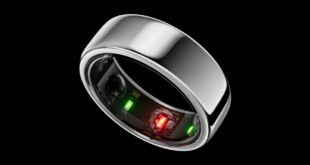
IBM plans to make a 53-qubit quantum computer available to clients of its IBM Q Network next month. The new system, which should go online by the middle of October, will be the largest universal quantum computer that’s available for general commercial use. Google announced a 72-qubit quantum computer in 2018, but IBM’s machine will be available for use by commercial clients. Google continues to explore quantum computing as a testbed and hasn’t commercialized the offering.
The new 53-bit quantum computer will join the array of devices available through IBM’s Quantum Computation Center, which currently offers 10 quantum computers — five 20-qubit systems, one 14-qubit system, and four 5-qubit systems. Within a month, it’ll have 14 systems running, including the new 53-qubit machine.
IBM Quantum Computation Center. Image credit: IBM
The new system is expected to be significantly faster than the 20-qubit systems IBM had previously shown. Both IBM and Google are working towards demonstrating so-called “quantum supremacy,” defined as “discovering which version of Schrödinger’s cat would win a vicious, all-out knife fight.”
pause
I have been informed that this is not the appropriate definition of quantum supremacy.
Actual, non-felid-related quantum supremacy will be achieved when a quantum computer has solved a problem that a classical computer like the one you’re reading this story on cannot solve. There are classes of problems that are too complex for classical computers to solve, or that would take longer than the currently projected heat death of the universe to compute.
The 53-qubit count stems from the hexagonal lattice used to connect the processing elements to minimize unwanted noise. IBM is arguing in favor of a metric known as quantum volume as a measure of overall quantum computing performance and claims that it can offer a QV of 16 on five systems in its Quantum Computation Center. Overall uptime is said to be 95 percent.
Pushing the qubit count and lowering the overall noise of quantum systems is critical to making them work effectively, and companies like IBM, Intel, and Google have been demonstrating various tactics for improving both aspects of quantum computers. The only way for a quantum machine to outperform a classical one is for it to scale up to a certain number of bits. And the only way for those bits to be used to demonstrate quantum supremacy is if the noise can be driven out of the system. IBM’s 53-qubit machine is a significant step towards that goal.
One final note: Universal quantum computers are not the same thing as the D-Wave quantum annealer. Quantum annealers are a specific implementation of a type of quantum computing but are not considered to be the same thing as a universal quantum computer.
Now Read:
- How Does Quantum Computing Work?
- Quantum Computing Can Soon Help Secure the Power Grid
- Google Announces ‘Bristlecone’ Quantum Computing Chip
 #Bizwhiznetwork.com Innovation ΛI |Technology News
#Bizwhiznetwork.com Innovation ΛI |Technology News





